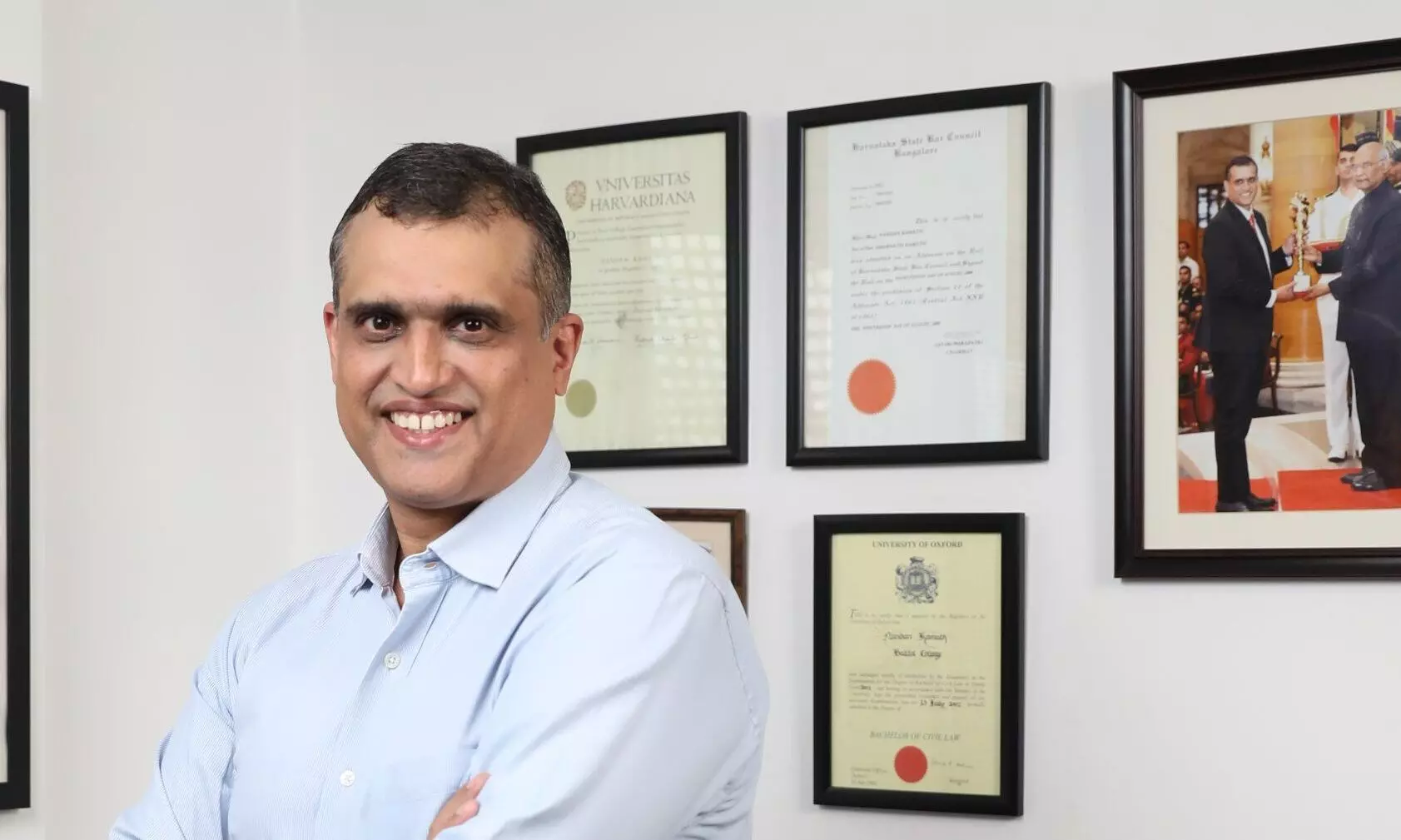Law in Sports
Nandan Kamath on Navigating Legal Challenges in the Indian Sports Arena
Sports lawyer Nandan Kamath talks about doping, gender equality, betting in sports, and his book “Boundary Lab” in a conversation with us

Source: Nandan Kamath/ Twitter
The country's sports industry is expanding, but it also has issues of its own that need to be addressed. Among them are betting, doping, and gender inequality. In an exclusive conversation with The Bridge, Co-Founder of Sports and Society Accelerator, Founder of GoSports Foundation and Principal Lawyer at LawNK, Nandan Kamath addresses these topics.
Nandan Kamath has a deep passion for sports and has contributed significantly to the development of sports in India. He captained the Karnataka Junior cricket team before pursuing his LLM at Harvard Law School. His deep understanding of the industry and the legal aspects has led him to write the book - ‘Boundary Lab: Inside the Global Experiment Called Sport.’
Gender equality is an increasingly important topic in all fields, including sports. The binary categorization of males and females in sports and its effects on inclusion, fairness, and gender fluidity are at the centre of the discussion. “When you talk to children, the first thing they will say is I'm a boy, I'm a girl, before any other form of identity,” Nandan said. “Sports actually challenges that because we are moving to a phase where gender is seen as fluid. But sports, in some sense, is imposing a binary, saying that either you play in the male category or the female category.”
Moreover, women’s sport is still treated as a hyphenated version of men’s sport. “Even today, if you see a World Cup, you have the World Cup and you have the Women's World Cup. Though a few sports are now calling it the Men's World Cup, female sport had to fit into male sport, which meant that it was always seen as, in some sense, the easier category,” Nandan recalls.
For a while, debate has been going on whether trans women should be allowed to participate in the men's category or not because “the real issue in male and female sport has been seen as upper body strength, testosterone, muscular sort of development, and physicality.” However, in chess, it is a completely different scenario. The process of providing an equal platform from a government’s perspective raises different questions: “Do you just throw them into an open event with limited resources, limited media coverage, and limited support? They're supposed to sink or swim in an open field, or do you find categories where women can compete, get better, and then get into open competition?” Nandan said.
Another important concern is doping, which needs to be dealt with as a uniform law all around the world. If a weightlifter is transitioning from the male to female category, “you have to address this, and all of the world has to address this with a common rule,” Nandan said, “and that means finding common rules that are sort of devoid of local context, local politics, and local solutions that actually elevate this to a global conversation.”
Doping is not limited to athletic sports and has become an open secret in the world of ESports, where a lot of athletes are using illicit substances to give themselves a competitive advantage. “There are substances that enhance your ability to respond quickly, sort of sharpen your attention, and keep your focus. Different types of doping or different types of performance enhancements depend on the skill needed in each of those sports,” he said.
Determining whether sports betting is legal in India involves a number of factors and challenges. A primary challenge is the way that various forms of sports betting are perceived and contextualised in society. Horse racing, for instance, has long been seen as an elite activity requiring skill, but “when you talk about cricket betting, all you think of is the Mumbai underworld, 14 cell phones in a dingy apartment, and police knocking on the door,” Nandan remarks. If analysing how a horse runs and their relationship with the jockey is a skill, then it can be the same for other sports like cricket or tennis as well. Fantasy sports is a strategic game that is built on top of these games, which Nandan explores in his book ‘Boundary Lab: Inside the Global Experiment Called Sport.’
Nandan founded the GoSports Foundation just over 15 years ago with the intent to “democratise access to show the pathways to sports performance.” There was a high level of cynicism, as people thought there was no future in sports in India, and the Foundation wanted to overcome this thinking. “We wanted to make sure that we were covering a wide range of sports that were not already well supported,” Nandan said.
GoSports Foundation is the first organisation to support the Paralympics. They have scholarship programmes to provide financial aid to both Olympic and Paralympic aspirants. “There are now 13 or 14 different programmes that GoSports undertakes. They work through athletes, academics, coaches, to build a healthy sports ecosystem,” Nandan added. As we look ahead to the Olympics and Paralympics later this year, we need to continue encouraging young athletes both on and off the field, celebrating their resilience, determination, and boundless spirit, and ensuring that the legacy of sportsmanship and excellence endures for years to come.
